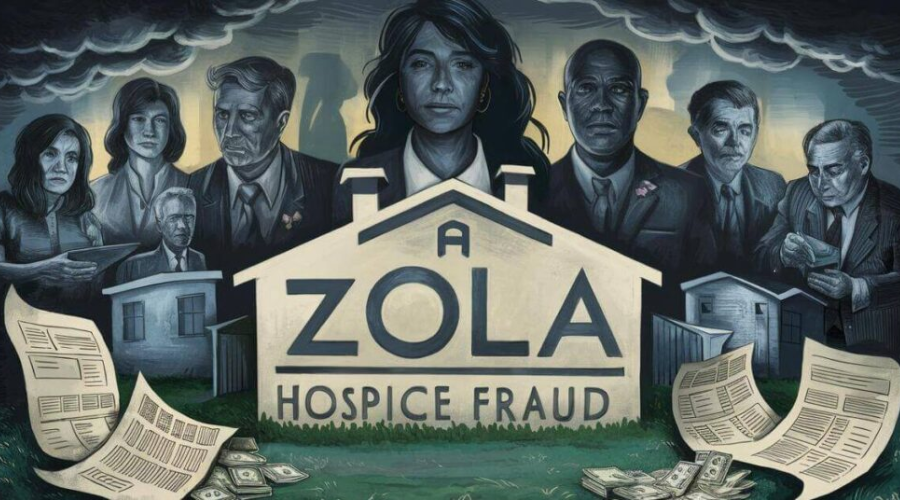Hospice care aims to provide comfort and support to patients nearing the end of their lives. However, the Zola Hospice Fraud case has revealed a troubling side of this essential service. It’s crucial for patients, families, and healthcare professionals to understand the nature of this fraud to ensure the integrity of hospice care is preserved.
What Is Hospice Care?
Purpose and Goals
Hospice care focuses on offering emotional and spiritual support while managing pain and symptoms for patients at the end of their lives. Its primary aim is to enhance comfort and quality of life rather than pursuing curative treatments.
Benefits of Hospice Care
Hospice care provides comprehensive support, including counseling, pain management, and respite for families. It strives to ensure that patients experience a dignified and comfortable final phase of life.
The Rise of Hospice Fraud
Historical Context
Hospice fraud is not a new phenomenon, but it has become more prevalent as some healthcare professionals exploit the system for financial gain. Common fraudulent practices include enrolling patients who do not meet eligibility criteria and billing for services that were never provided.
Services Offered by Zola Hospice
Zola Hospice was dedicated to delivering essential services such as pain management, emotional support, and spiritual care to terminally ill patients and their families.
Investigating and Uncovering the Fraud
Initial Concerns
The investigation into Zola Hospice began with concerns raised by former employees and discrepancies in billing records. These red flags prompted federal and state authorities to delve deeper.
Role of Whistleblowers
Whistleblowers played a pivotal role in uncovering the fraud at Zola Hospice. Employees who noticed unethical practices came forward, providing critical evidence that led to the investigation.
Fraudulent Practices in Patient Documentation
It was discovered that Zola Hospice engaged in fraudulent activities, including falsifying patient information to make patients appear more critically ill than they were, or enrolling patients who were not terminally ill.
Billing for Unnecessary Services
A major component of the fraud involved billing Medicare and Medicaid for services that were either unnecessary or not provided. This fraudulent billing inflated the company’s revenues at the expense of taxpayers and healthcare resources.
Exploiting Vulnerable Patients
Zola Hospice targeted vulnerable patients without proper diagnosis or consent, resulting in denial of necessary care and exploitation of the system.
Impact on Patients and Families
The fraudulent practices of Zola Hospice had severe repercussions for patients and their families, causing emotional distress and financial burdens due to inadequate or unnecessary treatments.
Personal Stories from Affected Families
Numerous families shared their distressing experiences, highlighting the profound human cost of the fraudulent practices employed by Zola Hospice.
Legal Proceedings and Consequences
Charges and Trials
Zola Hospice and its officials faced charges of fraud, conspiracy, and making false statements. The legal proceedings involved extensive testimony from former employees, family members, and expert witnesses, illustrating the seriousness of the fraud.
Sentencing and Penalties
The court imposed substantial fines and prison sentences on those directly involved in the fraudulent activities, marking a significant legal and financial blow to Zola Hospice.
Government Response and Regulation
New Guidelines and Regulations
In response to the Zola Hospice case, new regulations were established to enhance oversight of hospice care providers and prevent similar fraud in the future.
Medicare and Medicaid’s Increased Scrutiny
Medicare and Medicaid intensified their scrutiny of hospice providers, implementing stricter audits and compliance checks to ensure proper use of funds.
Enhanced Monitoring and Assessments
Government agencies increased their monitoring efforts, utilizing data analytics and other tools to detect and prevent fraudulent activities in hospice care.
Preventing Hospice Fraud: Measures for Healthcare Providers
Healthcare providers can combat fraud by implementing robust compliance systems, conducting regular audits, and fostering a culture of transparency and integrity.
The Importance of Ethics and Transparency
In healthcare, ethics and transparency are paramount. Providers must prioritize patient needs over financial interests and ensure adherence to ethical and regulatory standards.
Leveraging Technology for Fraud Prevention
Technology can play a crucial role in preventing fraud. Predictive analytics, automated billing systems, and electronic health records can help identify and address irregularities.
The Role of Whistleblowers
Importance of Whistleblowers in Healthcare
Whistleblowers are essential in exposing fraud and maintaining the integrity of healthcare services. Their willingness to report unethical behavior helps safeguard patient care.
Protection and Incentives for Whistleblowers
Legislation provides protections and financial incentives for whistleblowers, encouraging them to report fraud without fear of retaliation.
Raising Public Awareness and Education
Educating patients and families about hospice care and potential fraud is crucial for empowerment and informed decision-making.
Resources for Reporting Fraud
There are various resources available for reporting suspected fraud, including hotlines, websites, and support groups dedicated to patient safety and healthcare integrity.
Key Takeaways from the Zola Hospice Case
The Zola Hospice fraud case highlights the importance of vigilance, transparency, and ethical behavior in healthcare. It underscores the need for stringent oversight and the critical role of whistleblowers in maintaining trust in hospice care.
Broader Implications for the Healthcare Sector
The case has led to a renewed focus on patient protection, fraud prevention, and responsible healthcare spending, aiming to prevent future occurrences of such deceitful practices.
Conclusion
The Zola Hospice fraud case serves as a stark reminder of the potential for exploitation within the healthcare system. By learning from this case, we can work towards ensuring that hospice care remains a source of dignity and comfort for those in their final days.
FAQs
What constitutes hospice fraud?
Hospice fraud involves unethical practices by hospice providers, such as enrolling ineligible patients, billing for unnecessary services, and falsifying patient records.
How can I report suspected fraud at a hospice?
You can report suspected hospice fraud to the Medicare Fraud Hotline, the Office of Inspector General (OIG) Hotline, or your state health agency. Many organizations also offer anonymous reporting options.
Stay informed with comprehensive technology insights at Kongotech.



